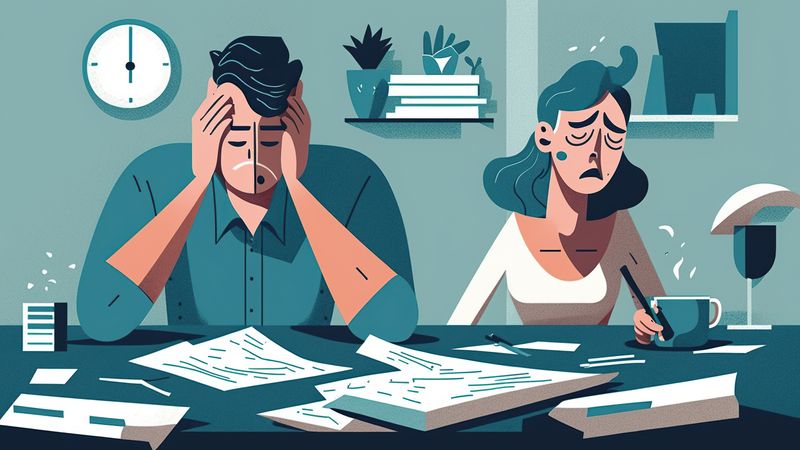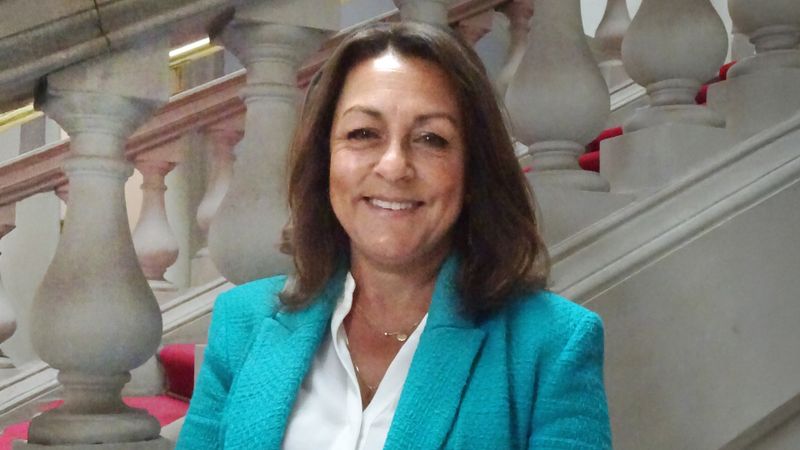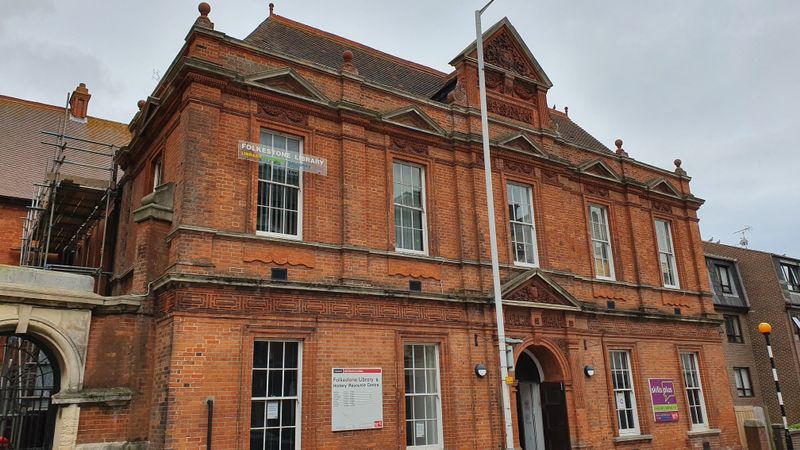What is the Kent Money Advice Hub?
It is a partnership service between local Citizens Advice offices in Kent, Debt Free Advice and Kent County Council, funded by KCC's Helping Hands scheme (which has utilised central Government grant funding to support residents in response to the coronavirus pandemic). The service provides free, confidential, and impartial money advice, such as around budgeting and benefits. It is open to anyone in the county.
The service can be accessed via the Kent Money Advice Hub website (www.kentmoneyadvicehub.com) where people can connect to an adviser via online webchat or video call features. People can also speak to an adviser by calling our dedicated freephone helpline number on 0800 808 5622 (Mon-Fri, 8am – 8pm). There are also a number of video kiosks in community spaces across Kent for people who do not have a digital device, aren’t confident using the digital channels or do not have access to the internet. We are also hoping to develop a WhatsApp service.
You are connected to a real adviser whichever way you choose to access the service. It allows for the same level and quality of face-to-face advice enabling us to build rapport with people in a convenient way for both clients and advisers.
The aim is to provide money advice. The service also acts as a referral pathway to make advice and support, available through extensive online resources and charity partners, more accessible. Irrespective of the issues - which are so often interconnected - please get in touch. We are casting the net wide in terms of who we are looking to support through this service.
How does it work?
The most crucial thing is to get in touch so that we can support you and offer a level of advice that is going to reduce any stress and anxiety pretty much instantly.
We start off with what we refer to as the ‘initial exploration’. We ask questions about a whole host of different topics, such as health, family, housing, council tax, benefits, employment and debt to build up a well-rounded understanding of an individual’s circumstances. The more information we can get the better. If that is not to hand, it can be provided at a later date.
We then provide options to reduce any debts through a debt assessment that details what is owed and to who, earnings, and expenses. We use this information to produce a budget to both help the client visualise their situation and for us to identify possible options, such as ways to maximise income.
When should people get in touch?
We are urging people to seek money advice and support as soon as possible. Preventative action is always best. Having said that, there is no bad time to contact us so do reach out, whatever the problem is, whatever stage the problem is at. It doesn’t matter who you are, your background or your situation; we’ll either be able to help you on the day with advice or we’ll refer you to services that can offer targeted advice and support on the issues you are experiencing.
How damaging is debt to people’s health?
The impact is substantial and can affect all aspects of life. With the cost-of-living crisis, money concerns and debt are increasingly affecting more and more people across society. This includes those in employment with high costs who are trying to manage on extended credit card limits and overdrafts and for whom money concerns and debt might not have been an issue until now. Pushing the boundaries of borrowing inevitably is a growing stress that is not being resolved.
Mental health often restricts an individual’s ability to take proactive action; they find the stress and anxiety associated with incurring debt quite debilitating and so by the time they contact us, they have reached a crisis point where perhaps bailiffs are knocking on the door. If people are able to come to us at a much earlier stage, then we can take preventative action to stop the cycle of debt making mental health worse and mental health making money concerns and debt worse.
Debt exacerbates and aggravates underlying health conditions including depression, anxiety, PTSD and personality disorders – we regularly deal with people with these health challenges. It can also lead to inappropriate coping mechanisms, reliance on substances, alcohol or gambling and of course those coping mechanisms lead to further debt and a deterioration in lifestyle.
The increase in energy costs has meant people are not able to heat their homes, with the possibility of being susceptible to infectious diseases and general illnesses. People are also cutting back on fresh fruit and vegetables and surviving on a poor diet.
Bad quality sleep is also a contributory factor to ill health. Overall, money concerns, particularly any debts, impact on both a person's physical and mental health.
Is your work rewarding?
Because debt is so stressful, people are often paralysed and don’t know what to do. However, the situation might seem much worse than it actually is. We’re doing this every single day so we are able to look at it objectively with fresh eyes and quite quickly find possible solutions. Oftentimes it is simply a case of making someone aware of what options are available to them that they weren’t aware of before, thus empowering them.
Our key focuses are maximising income and reducing expenditure so people might be underclaiming benefits or not registered for council tax exemptions. There are also social tariffs available for broadband or water bills, which can sometimes reduce them by 20 per cent.
For us as advisers, we might have someone approach us in a certain state of mind and leave feeling noticeably better. It is very common that people find the whole experience quite emotional. They come to us with a lot on their shoulders, in a burdensome situation and they finish the call with an instant sense of relief and an increase in confidence and that’s a worthwhile moment to be able to experience.
How can I find out more?
Additional information about the Kent Money Advice Hub service and ways to access support is available at: https://kentmoneyadvicehub.com/
You can also visit the Citizens Advice in North & West Kent (CANWK) website to learn more about the Kent Money Advice Hub service in our ‘News’ section of our website (www.citizensadvicenwk.org.uk/about-us/news).
Some of the people the Hub has so far helped (names have been withheld for confidentiality):
Client A is a young single mother, living in a one-bedroom flat with her three-year old son. She suffers from a number of mental health issues (which include bipolar disorder and depression) and is the sole custodian of her son which has impacted her ability to take up employment. The client is reliant on benefits (Universal Credit and Discretionary Housing Payment) as sources of income. However, this did not cover the entirety of her housing costs.
The client contacted Citizens Advice as she was facing financial hardship and wanted help dealing with numerous debts, amounting to £4,833.50. She also wanted help with maximising her income and appealing her Personal Independence Payment (PIP) decision, for which she had been rejected.
We successfully managed to get some of the client's debts written off on health grounds. We also helped her get a new washing machine to replace one she had on hire purchase, saving her £20 a month. As part of the income maximisation advice, we also referred her to the benefits team for help with a PIP appeal for which she was awarded the enhanced rates for both elements – £156.90 a week, that's £8,112 a year financially better off.
Client B is in her mid-50s and suffers from various health conditions (including diabetes, epilepsy and diverticulitis) which have impacted her ability to take up employment. She is in receipt of Universal Credit (UC) and Personal Independence Payment (PIP). However, the benefits do not fully fund her daily living expenses.
She contacted the Hub via the freephone number as she is struggling financially with the cost of living. The client also wanted advice about why her PIP entitlement changed from the enhanced to the standard rate as her health had become exacerbated. The client recalled that her previous PIP assessment took place over numerous phone calls however, she struggled with these as she loses her voice after speaking for a prolonged period.
The adviser completed a benefits check which showed the client could be entitled to £997.07 (to contribute towards her standard allowance, housing and disability or health conditions). She is currently receiving a different amount. Therefore, she was advised to check her existing UC statements to ensure she is receiving the correct amount and advised she could contact us again for further help on this.
Additionally, the adviser provided her with other options to help with her financial situation. The client wanted support from a local food bank, so the adviser arranged a foodbank delivery to the client's home.
Client C is a single mother, with two small children under the age of 10, one of which has been diagnosed with autism. She has mental health issues (depression and anxiety), has a chronic pain condition and a gambling addiction.
She contacted the Hub via webchat as she was facing financial hardship and wanted help dealing with her debts, amounting to £7,000. This was her first time seeking money advice.
The adviser conducted a benefits check which reaffirmed it was best for her to remain on the legacy benefits she was already receiving (rather than moving across to Universal Credit). Subsequently, due to her health conditions, she also qualified for health-related benefits.
She was provided with preliminary debt advice which included explaining the difference between non-priority and priority debts. The adviser explained that her energy debt is a priority debt and suggested contacting her provider to register as a vulnerable client due to her health conditions and enquire about the social tariff scheme due to her low income. The client was very grateful for the advice and support as she was provided with information that she was unaware of.
Due to the client’s mental health conditions and the need for ongoing and in-person advice and support, she was referred into her local Citizens Advice in Canterbury to take on the case and help negotiate repayments on her debts (including the energy debt).
Client D is a woman, with one child under 10 years of age, who is diabetic and has learning disabilities.
She contacted the Hub via the Willow Children’s Centre kiosk in Ashford as she had bailiffs on her doorstep and wanted to know what her rights were. Bailiffs had been instructed as she had not appeared in court regarding a £940 TV licence debt. The adviser spoke to the bailiffs and successfully negotiated that they would hold off further action while the matter was looked into.
Due to her health condition, the adviser also recommended that she apply for Personal Independence Payment (PIP) to help her financially. She mentioned she had been receiving it in the past and when it came to renewing it had submitted an application herself but had been rejected. However, the adviser determined she may still be entitled. Therefore, she was referred to her local Citizens Advice in Ashford to receive support with her PIP application.
The adviser discovered she had a benefits statement that showed there was already a direct deduction in respect of the TV licence arrears owing. The client contacted Department for Work and Pensions herself who revoked the TV licence arrears.
Client D was grateful for the advice and support, particularly when the adviser spoke with the bailiffs. She was very relieved and felt as though a weight had been lifted off her shoulders knowing she wouldn’t be harassed by bailiffs and that she was given time to resolve this situation. After the situation had resolved, she personally called up the service again to thank the adviser for their support.
Client E is in his 50s and lives with his wife and two children, both aged under 10. He is a full-time carer for his two children who suffer from non-verbal autistic syndrome and are in receipt of Disability Living Allowance. The children’s needs are the reason for the family's high energy consumption.
He contacted the Hub via the freephone number as he is struggling to pay the energy bill direct debit, which has increased from £200 to £371 per month. He wanted to know what financial support is available to him.
The adviser provided possible financial support that he might be eligible for, such as Discretional Housing Payment (DHP). He was also referred to the Citizens Advice energy team to provide further assistance with his energy matters. Other financial advice and support is being provided to him.
Client E mentioned he had already contacted his existing energy provider to inform that them he could not afford the increased payments, to which they offered him a 10% reduction. He voiced he could still not afford this and wasn’t provided with much help from the energy provider. Therefore, he was grateful for the advice and support received through this service so far.
Client F is a single man in his mid-thirties who lives in a one-bedroom rental property. He is unemployed and seeking paid employment and is reliant on benefits (Universal Credit and Council Tax reduction) as sources of income. However, this does not cover his essential living costs. He has been diagnosed with epilepsy, and was hospitalised last year following a double seizure. He was strongly recommended to manage his stress levels.
The client contacted Citizens Advice for money advice due to having rent arrears amounting to £1,650 and £300 that he owed for Universal Credit overpayment. He also wanted advice on what benefits he could be eligible for.
We successfully supported the client in writing off the previous year's rent arrears amounting to £462. He was very happy about this as it allowed him to pay reduced monthly payments going forward. In addition, he has been presented with further options on managing his current financial situation, such as asking the Department for Work and Pensions to lower his deductions.
We also discovered that the client had electricity arrears amounting to £890. Currently, we have helped him submit an Energy Trust grant application to help towards his energy costs. Ongoing advice and support is being provided to him.




